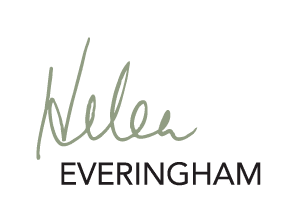ACTIONS FOLLOW FEELINGS
This is a fairly obvious statement. Whatever emotion we are feeling usually determines how we act.
If we feel anger, we will act in an angry way. The way we speak, along with our body language, will give every indication that we are angry.
When we feel excited, we will see in our body language and speech that we are excited and we will act in an excited way.
If we feel upset, we will act in an upset way. If we feel tired, we will act in a tired way. So it is plain to see that Actions Follow Feelings
Interestingly, the opposite is also true – “Feelings Follow Actions”. It’s not as obvious but it is true.
If you saw a dirty, snotty-nosed kid you might feel a certain way towards him, but if you saw that he was hurt, you’d rush over to help. I think you’d agree your feelings towards him would change.
If you want to test “Feelings Follow Actions”, pretend to have an argument. Start arguing with someone and act as though you two are having a major altercation. I guarantee within a few minutes you two will be involved in a rip-roaring fight. And if you don’t believe me, give it a try with someone.
You may have heard me speak these words at a workshop. “What we say controls what we think. What we think controls what we feel. What we feel controls how we act.”
To a great extent this is true. However, I recall many years ago I decided to go for a walk every morning. Good thought; that will help me feel great and set me up for the day. The next morning I woke up and thought, “Maybe I won’t start this morning. I’ll start tomorrow.” (Or am I the only one who has done this?)
We human beings can talk ourselves in or out of anything. It depends on the end result we want to achieve. I wanted to feel good and be energised for the day. I took action, got out of bed, threw on my clothes and after a half hour walk, I felt great.
Instead of working on
Thoughts→ Feelings → Actions
which is ideal in some situations, consider
Thoughts → Actions → Feelings
where you’re not achieving the desired results.
- You might not feel like going to the gym but you know you feel more energised and powerful after a good workout.
- You have been meaning to write to your aunt for ages but you will feel good knowing that she will appreciate your letter with all your news.
- You may not feel like taking time out to do some relaxation, but you know taking 10 minutes out of your busy day will help you feel more grounded and clear-headed.
- When that alarm clock goes off in the morning you may not feel like leaping out of bed, but you know you feel good when you get an early start and make the most of the day.
- What about that person who you feel irritated by? Maybe a change in your actions will help you feel better. Remember we can’t change other people’s behaviour. The most we can hope for is a change in their reaction. What you put out comes back and your feeling better is a bonus.
Remember to congratulate yourself when you DID do what you said you would do. If you ‘fell by the wayside’ in some areas, give yourself correction. Acknowledge that you didn’t do so well but you will do better next time. (No beating yourself about the head with a big stick.)
While the statement “Actions Follow Feelings” is obvious, “Feelings Follow Actions” is just as powerful. When you realise how powerful it is, it can be a very effective and useful tool to change your feelings in many situations.
Love and Laughter to you all. Have a happy month, enjoy the warmth of Spring.


